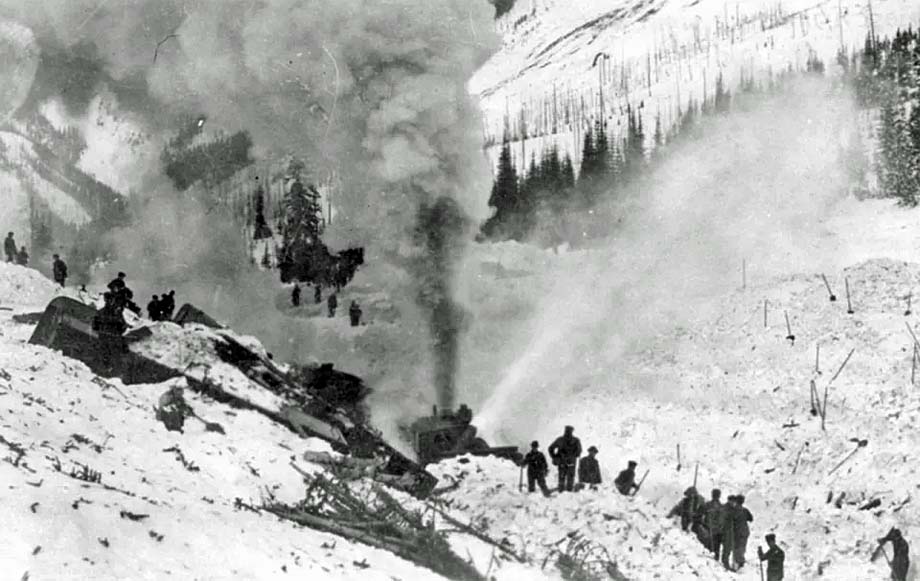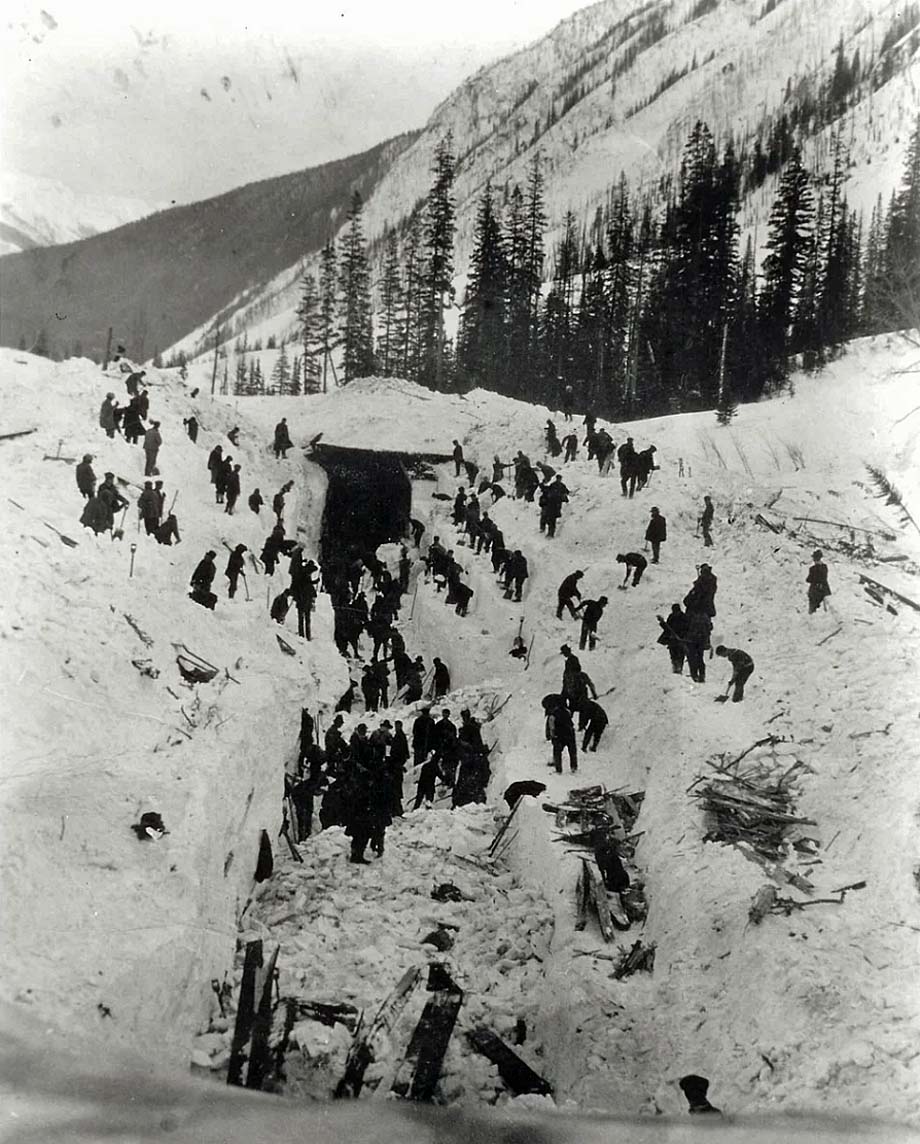
Sunnyvale California USA
Rogers Pass British Columbia - Revelstoke is home to Canada's worst avalanche
disaster.
On 4 Mar 1910 an avalanche killed 62 men while they were clearing snow from the railway on Rogers Pass, which runs
through the Selkirk Mountains.
Revelstoke's history is inextricable from its railway system.
The city was founded in the 1880s when the Canadian Pacific Railway (CP) was constructed through the
area.
Revelstoke was named by the CP, in appreciation of Lord Revelstoke, the head of a United Kingdom investment bank that
helped save the railway line from bankruptcy in 1885 by buying the company's unsold bonds.
So Revelstoke is Revelstoke because of its railway.

It's also a very snowy area.
The city holds the Canadian record for the snowiest winter.
During the winter of 1971-1972, a total of 2,447 centimetres of snow fell on Mount Copeland, and the town received 779
centimetres.
The Rogers Pass rail line was completed in November 1885.
There were snow sheds in the area, which are avalanche prevention structures, but there were vulnerable areas of the
track that couldn't be protected.
So, men and equipment were often called upon to clear the track after an avalanche buried it in snow.
On 4 Mar 1910 a crew headed out to clear the tracks from a big slide that had fallen from Cheops Mountain.
63 men and a locomotive driven rotary snowplow were sent to clear the tracks.
There was urgency because a westbound CP train was just entering the Rocky Mountains and headed for
Vancouver.
At 23:30 the crew was almost finished clearing the track when an avalanche came crashing down from Avalanche
Mountain.
The locomotive and plow were thrown 15 metres and landed upside-down on the ground.
The cars behind the locomotive were crushed and 62 out of the 63 workmen were instantly buried in deep
snow.
Billy Lachance, the locomotive fireman, was the only survivor.
Railmen, physicians, and nurses headed to the scene, but there were no casualties to treat.
The rescue mission turned into a body recovery mission.
Many bodies were found standing upright and frozen in position.
Since the Rogers Pass' construction, avalanches have killed more than 200 people in the area.
The CP closed the Rogers Pass line in 1913.
Randi Mann.
 Completion of the Connaught Tunnel made the Rogers Pass line
redundant so it was abandoned.
Completion of the Connaught Tunnel made the Rogers Pass line
redundant so it was abandoned.
(likely no image with original article)
(usually because it's been seen before)
provisions in Section 29 of the
Canadian Copyright Modernization Act.

